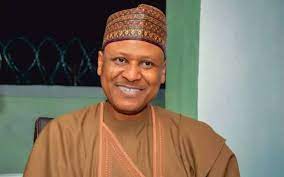Dr Emem Omokaro would be inaugurated as the first director-general for the National Centre for Senior Citizens today. She tells AWAAL GATA how she would use the newly established centre, under the Ministry of Humanitarian Affairs, Disaster Management and Social Development, to enhance the welfare of Nigerians who are 70 years and more through robust engagements with relevant stakeholders.
How did you feel when you got the news that President Muhammadu Buhari appointed you as the director general of the National Centre for Senior Citizens?
The feeling for me was projecting the feelings of almost every person who has worked for so long in the field of ageing to bring to life this kind of focal agency. It is a-dream-come-true. It is something that so much advocacy has gone into; so finally coming on stream gives so much excitement. We all need to say ‘kudos’ to Mr President for bringing it into life. Now we all know that the government really cares for its citizens who are vulnerable.
How imperative do you think the centre is to the country?
It is extremely imperative. My reason is that older persons are fully among the citizens of Nigeria but issues that concern them aren’t often given much priority. It should not have been so. The commission would give total priority to their issues. Naturally, their issues should be given more priority; the commission would change the narrative by working with relevant ministries, Departments and Agencies (MDAs) to change the narrative. The commission would work with the Ministry of Health to take care of their health issues. The Pension Commission would be engaged to take care of their pension issues. The Ministry of Agriculture will take care of their agribusinesses. You know most of them retire into farming. It would be strategic engagements across boards to enhance their welfare. With robust engagements, a lot of loopholes would be filled. Fixing the vulnerabilities of those who are 70 years and more make the commission very imperative. The commission would work more as a coordinating entity in mainstreaming and resolving every issue that concerns older people.
What agenda are you assuming office with?
Ageing is what everybody who is still alive would someday battle with. My agenda is to see that our beloved Nigeria is set on the path where the dignity, security and other welfare indices of older persons are guaranteed. We work towards ensuring that older persons have access to opportunities. They should have access to participate and contribute. We want to build a society where older persons are not stereotyped or discriminated against. We want to enhance inter-generational dialogue where everybody would come forward for the betterment of the country. This will restore the dignity of older persons. Their opportunities for participation would be restored. And that is when our society would be healthy.
Given the bureaucratic knots in Nigeria, do you have a formidable plan that would make your partnership with other entities easy and effective?
The beauty of the centre is that it has a board. The board comprises persons from critical agencies. Another leverage I have is that I have worked with people from so many agencies on ageing from policy conceptions and implementations. So, I am used to the terrain.
As the first DG of the centre, what are those things you need immediately to make your work viable?
The first one is data. There is no way to work effectively without data. Secondly, thank God Nigeria now has a national policy on older persons. Translating strategic implementation of the policy is very important. We also have to engage critical stakeholders, engage the media, talk to people and sensitise them. That is how the narrative would change.
What is your message to older persons as you assume office?
They should begin to wipe their tears. We would make sure that no stone is left unturned as far as enhancing their welfare is concerned. They should know that we would work together to achieve the set goals. They are the focal persons; ours is just the expertise that would be used towards achieving set goals. We would engage them to know what their needs are. They should come out of their cocoons to tell the government what they want for themselves.




